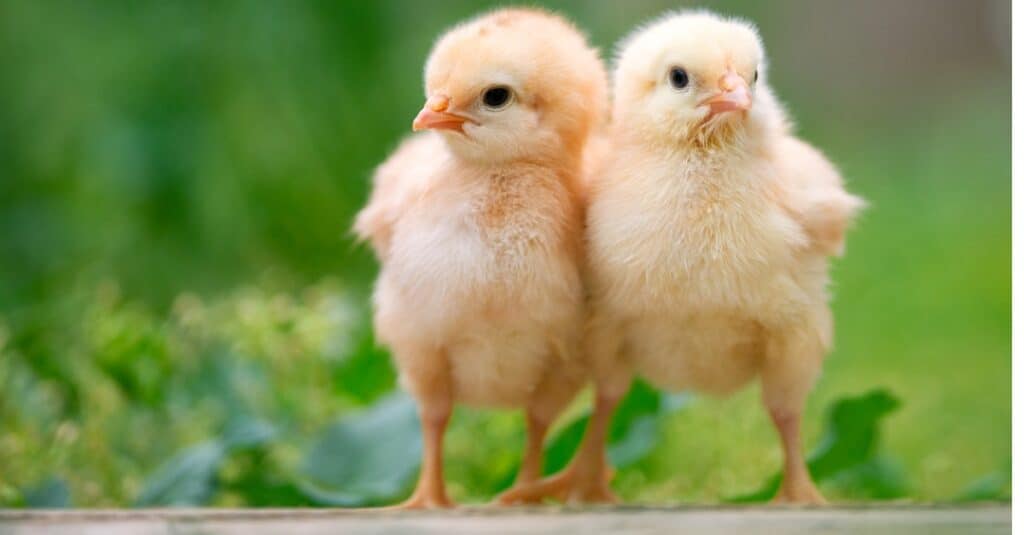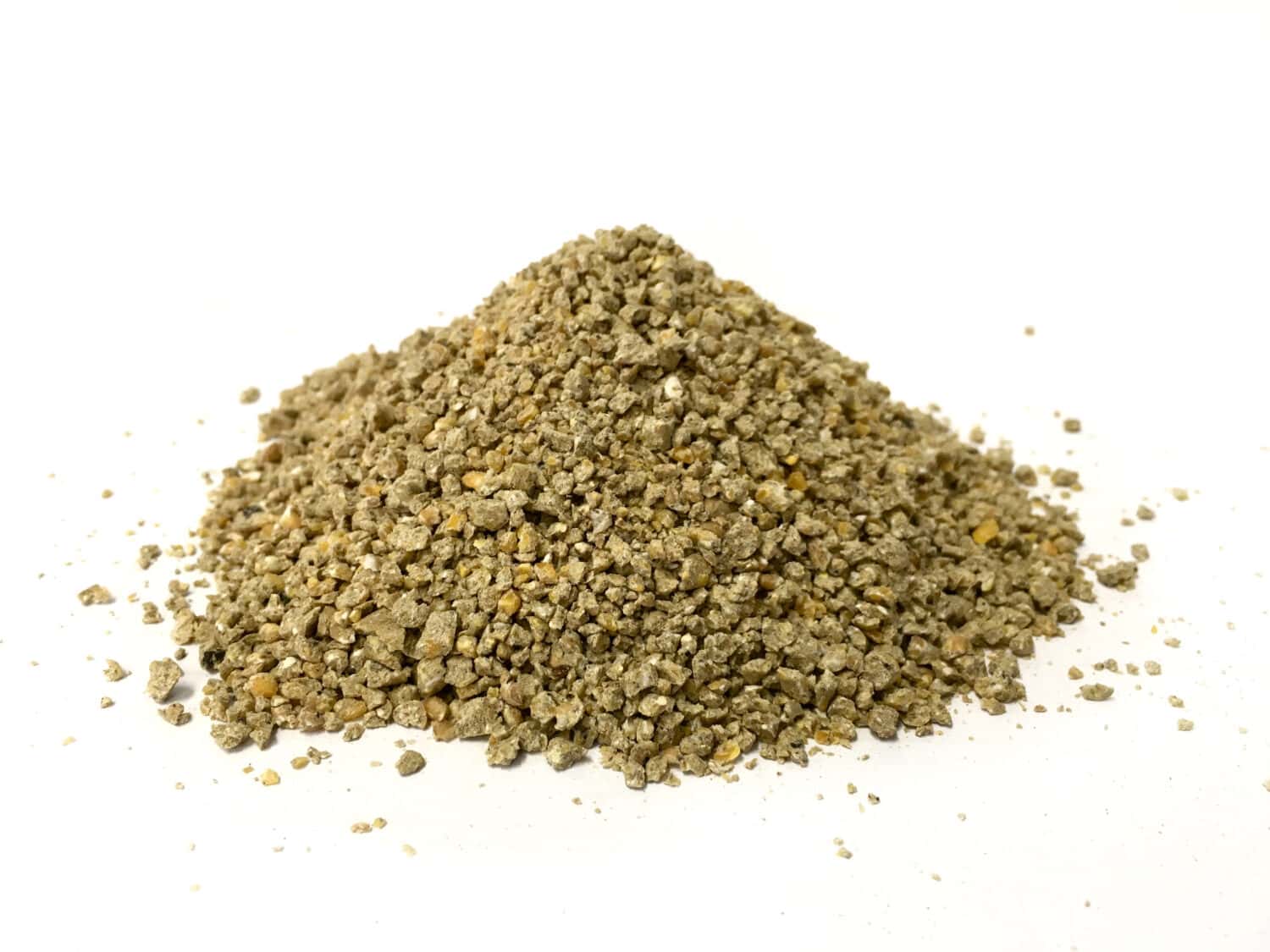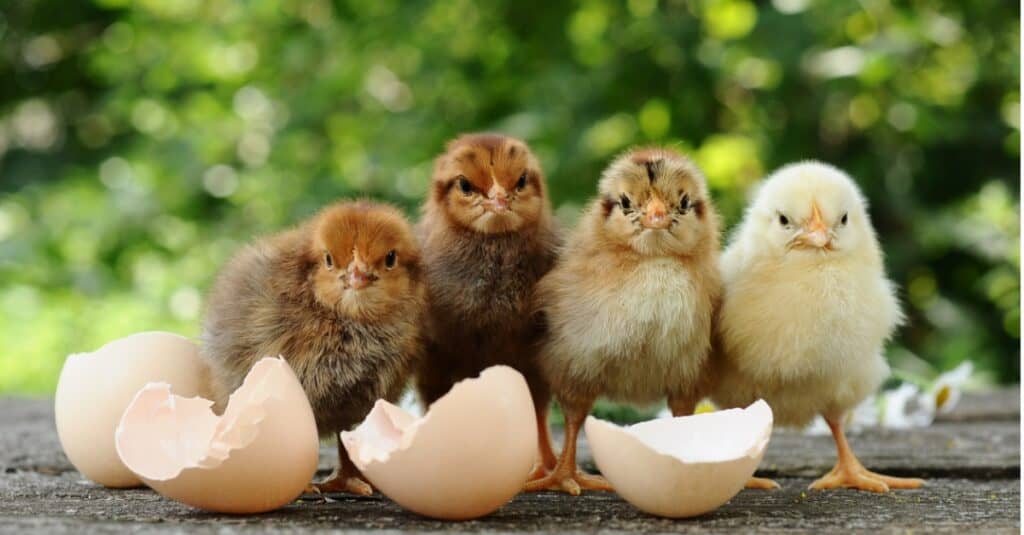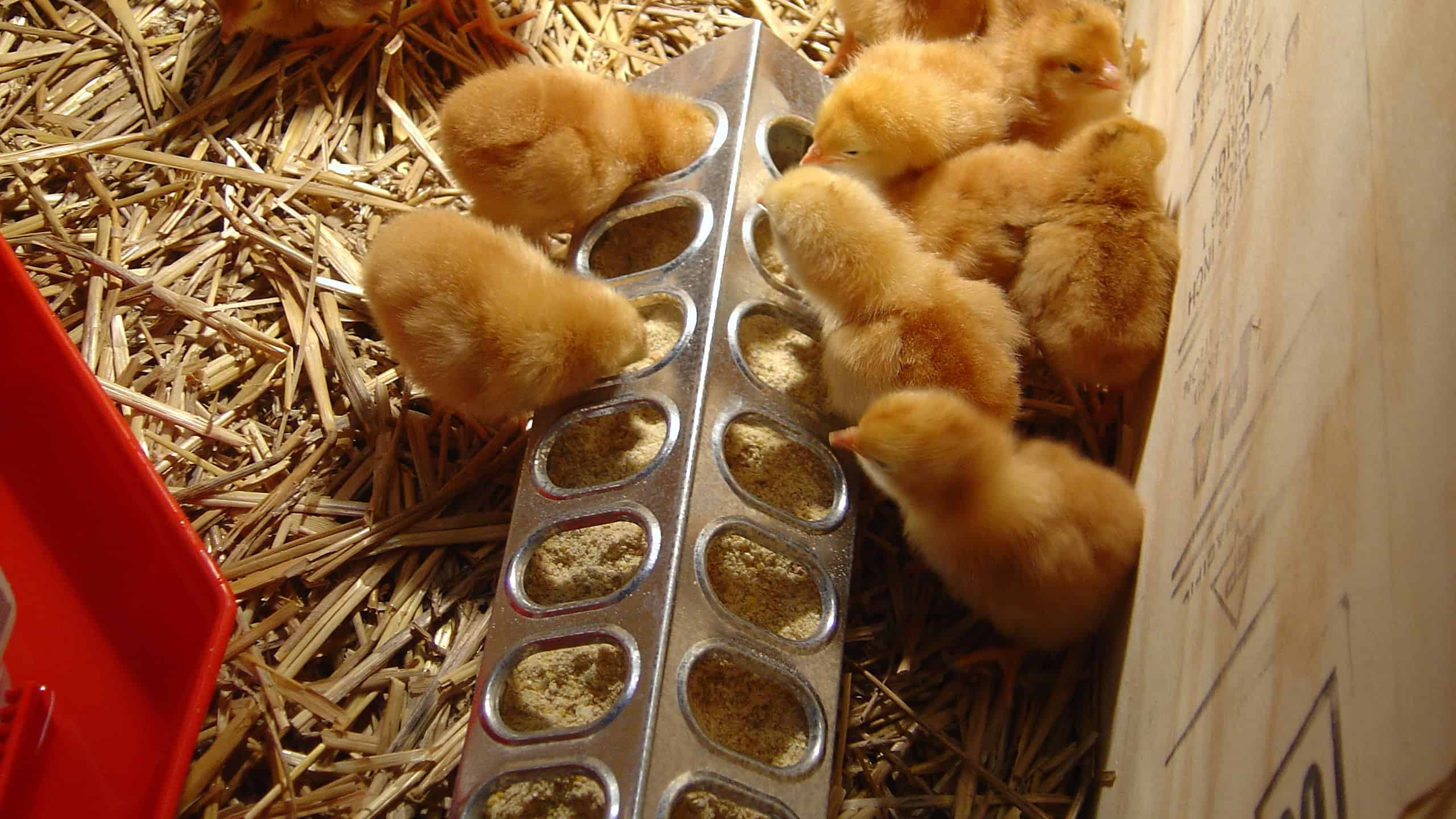Adding chickens to your family is a big step and a fun journey. If you are new to the poultry world, you likely have questions about proper care for those baby chicks you desperately want to bring home from the farm store or hatchery. And the reality is newborn chicks need something distinctly different from full-grown birds. One of those items is starter feed, a food specifically designed for growing birds. Here’s how to choose the best starter feed for chicks.
When to Offer Starter Feed to Chicks?
Starter feed is ideal for young chicks up to around eight weeks old. However, there are also blends that function as both a starter feed and meet the nutritional needs of older chicks. These brands often market their mixes as a starter and grow blends. They will sustain your birds until they reach sixteen to eighteen weeks old (for roosters) or egg-production age (for hens).

Starter feed is ideal for young chicks up to around eight weeks old.
©iStock.com/Tutye
What to Look For in a Starter Chicken Feed?
Look for a well-balanced, nutritious blend that reflects a chicken’s natural diet, including insects and plants. Good starter feeds contain minerals, vitamins, protein, carbohydrates, and fats. There shouldn’t be any fillers or additives. The goal is to ensure chickens get all the nutrition they need to develop properly. You also want something that will be easy on their digestive system.
Healthier starter feeds will help chicks develop to their full potential and may prevent disease development down the line.
Starter feed for chicks should contain at least 19% protein and little calcium. However, beyond that, they will vary greatly. Some options have a heavy corn base, while others start with a more balanced mixture of barley, peas, flaxseed, or wheat.
Types of Starter Feed
There are countless types of starter feeds on the market. Which option you choose will depend partly on your preference but mostly on what your chicks enjoy. Pay close attention to how your birds react to a feed. If they don’t seem keen on the blend or the type, consider switching to something different.
Mash
This type of starter feed is loose and granular. It contains all the key nutrients. But it isn’t molded and baked into shapes. Given that, mash is often the cheaper option.
Pellets
Pelleted food is baked into cylindrical shapes and is ready to eat. This version is easy to store and packed with nutrition.
Whole Grain
Whole grain feeds are just as they sound and closely resemble what chickens eat during natural foraging outings.
Organic
These starter feeds have gone through an extension certification process. The major advantage of this feed is that its ingredients were grown with fewer chemicals. However, these feeds are costlier. So, if raising an organic flock is important to you, be ready to spend some extra cash for the first two months.
Scratch and Peck
This feed type will give your chicks plenty to keep them busy during the day. However, it won’t have the same nutritional profile as other feed forms. Scratch and peck feed is best added as a supplement rather than used as a standalone food.
Medicated
Chicks can naturally develop an immunity to coccidiosis when fed a healthy, balanced diet and live in a low-stress environment. However, some starter feeds can include coccidiostat, a medication that can help boost immunity.
Multiple factors are involved when deciding whether or not to opt for a medicated starter feed. That includes your chicks’ vaccination status.

The pelleted chicken feed comes in whole or crumbled forms.
©Manee_Meena/Shutterstock.com
How to Select a Starter Feed?
Ultimately, deciding which starter feed to offer your chickens comes down to your unique situation. Consider factors like storage, time to feed, budget, overall goals, and what the chicks like.
Storage
Some types of feed are easier to store than others. Pelleted food is more convenient to store and easy to handle. Mash isn’t as easy to store, move, or handle. Choose the option that is best suited to your storage situation.
Time to Feed
Think about what is easier to feed. Mash can get served to the flock straight up or mixed into a type of porridge, which may mean extra time. If you don’t want to deal with that or don’t have time for it, consider pelleted food instead.
Budget
Not all starter feeds involve the same investment. The price points can vary greatly. Organic feeds are going to be more expensive than conventional brands. Mash will typically be more economical than pellets. Consider what your budget can handle before selecting a feed.
Overall Goals
These will be highly personal. Do you desire an organic flock? Would you like to protect your chickens from disease? How much time do you want to spend bonding with your chicks during feeding time? All of these are questions that may come into play when deciding on a starter feed.
What the Chicks Like
We can all have the best intentions and noble goals when it comes to chicken feed. However, if you pick what feels like the ideal feed and the chicks won’t eat it, your goals go out the window. Ultimately, what your chicks will eat matters the most since the goal is to raise a strong, healthy flock.

Deciding which starter feed is the right one comes down to your situation. Consider storage, time to feed, budget, goals, and the chicks’ taste.
©iStock.com/OlgaVolodina
Thank you for reading! Have some feedback for us? Contact the AZ Animals editorial team.








